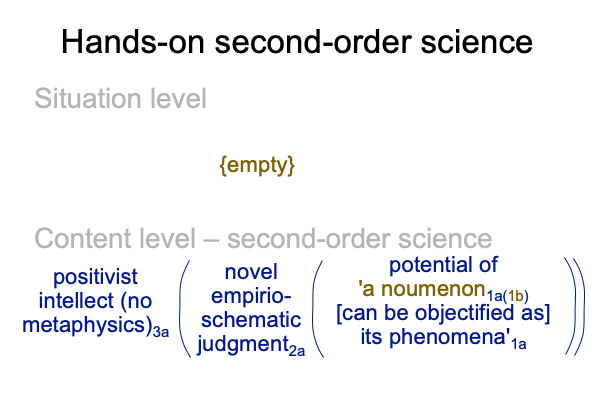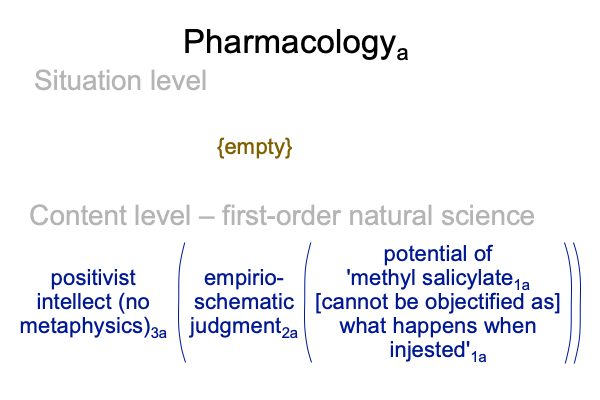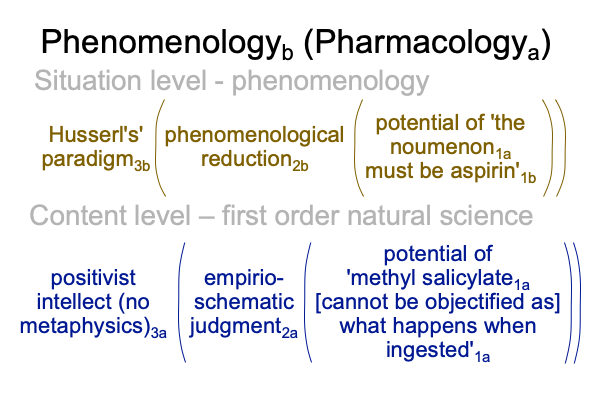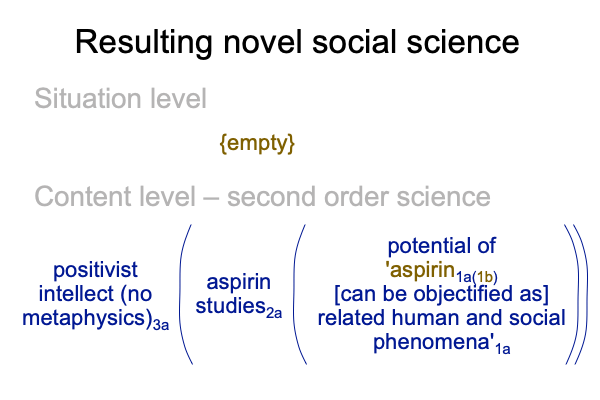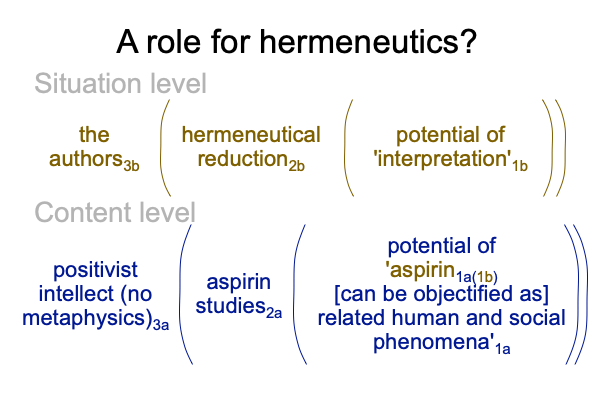Looking at John Perez Vargas, Johan Nieto Bravo and Juan Santamaria Rodriguez’s Essay (2020) “Hermeneutics and Phenomenology in… Social Sciences Research” (Part 11 of 18)
0037 Here is an example.
To a scientist3a, a hollow metal tube1a (the thing itself1a) may contain standing waves that change frequency depending on the length of the tube (its phenomena1a). Of course, the sound-making phenomena1a do not objectify the metal tube itself1a.
To a phenomenologist3b, the hollow metal tube1a turns out to be a flute1b. Now, the sound-making phenomena1a of the instrument objectifies what the hollow metal tube1a must be1a, that is, a flute1a(1b).
Now, the phenomenologist3b may be dismissed, while another social scientist initiates an empirio-schematic inquiry into the phenomena1a of a flute1a(1b).
0038 Here is a picture of the resulting novel, social science.
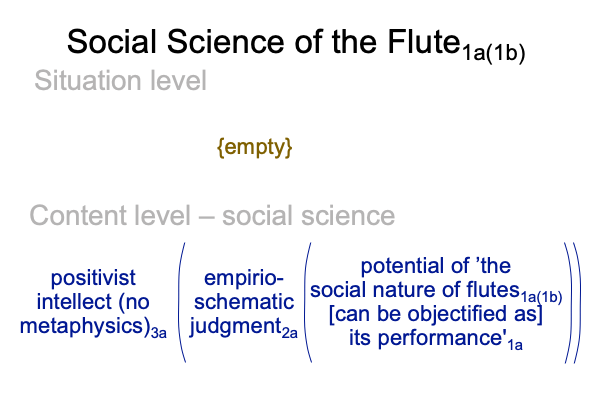
0039 With this subject matter in mind, consider the following snippet from the article (with comments in parentheses).”…the current epistemic shift (in phenomenology3b)… advances from the (visionary scientist3b‘s) observation of the object (, a model2a in the empirio-schematic judgment2a,) to that of the phenomenon1a and the (Husserl-inspired3b) systemic network2b that observes and determines it1b. The figure of the phenomenological interrelationship (the experience2b of an intersubjective being1b) is an act of revelation in which a human being3b manifests “him”-self… discovers “him”-self… a fact that contributes a growth project1b for the knowledge society2a (through a novel social science2a) that, despite technological advances, continues to find fractional human relationships (communities of inquirers3a committed to investigate2a the phenomena1a that objectify the intersubjective being1a(1b)).”

